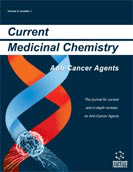Abstract
Inappropriate phosphoinositide 3-kinase (PI3K) signaling is one of the most frequent occurrences in human cancer and is critical for tumor progression. Various genetic mutations and amplifications have been described affecting key components of this pathway, with implications for tumorigenesis and also for resistance to targeted agents. Emerging preclinical research has significantly advanced our understanding of the PI3K pathway and its complex downstream signaling, interactions and crosstalk. This knowledge, combined with the limited clinical antitumor activity of mTOR complex 1 inhibitors, has led to the development of rationally designed drugs targeting key elements of this pathway, such as pure PI3K inhibitors (both pan-PI3K and isoform-specific), dual PI3K/mTOR inhibitors, AKT inhibitors, and mTOR complexes 1 and 2 catalytic site inhibitors. This chapter will focus primarily on an analysis of newly developed inhibitors of this pathway that have entered clinical trials, and recently registered patents in this field.
Keywords: AKT inhibitors, antineoplastic-agent, biological marker, clinical trial, drug combination, drug design, drug mechanism, gene mutation, human, mammalian target of rapamycin, mammalian target of rapamycin inhibitors, molecularly targeted therapy, neoplasm, patents, phosphoinositide 3-kinase, phosphoinositide 3-kinase inhibitors, pre-clinical experiment, pre- hyperglycemia, proto-oncogene proteins c-AKT, rash.






















